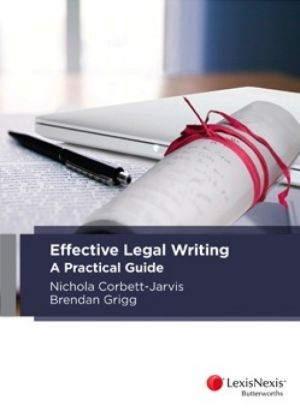
Effective Legal Writing: A Practical Guide introduces law students to essential writing skills and explains how they are applied in a legal context. It is designed as a course book for first year law students with ongoing relevance as a resource in subsequent years at law school and beyond. Basic literacy, legal literacy and writing skills are explored in a way that is fully integrated into legal content, reflecting current pedagogical best-practice.
The text assists students to develop their legal writing skills in their first year of law study and supports their transition to university life. The book also provides a useful reference for ongoing development as students progress through their degree and face a wide variety of legal writing tasks.
The skills developed by this text will provide a solid foundation to enhance performance in professional legal writing.
The text contains various examples, case-studies, questions and exercises in addition to a range of online ancillary materials designed for both lecturers and students.